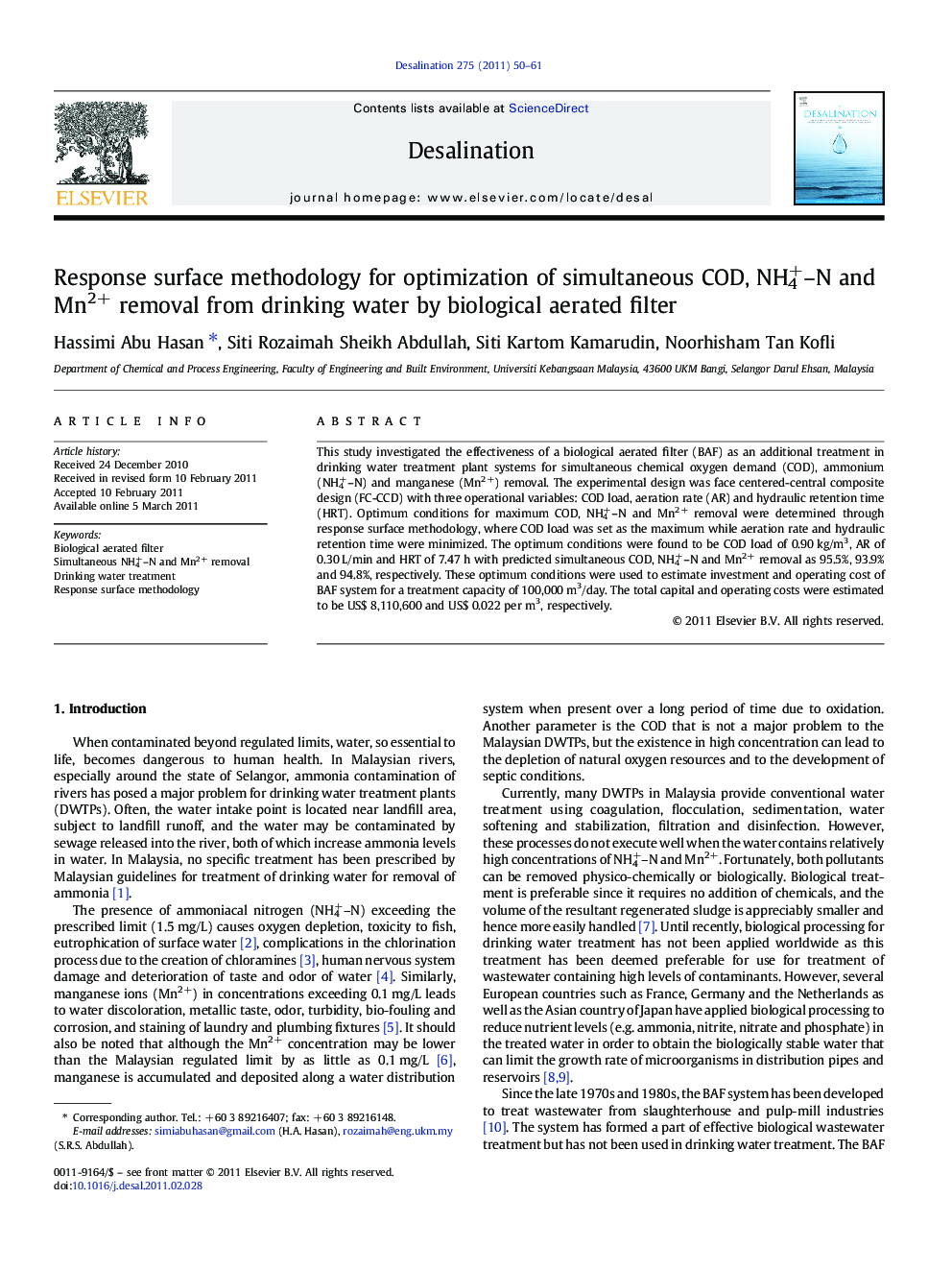| Article ID | Journal | Published Year | Pages | File Type |
|---|---|---|---|---|
| 625062 | Desalination | 2011 | 12 Pages |
Abstract
This study investigated the effectiveness of a biological aerated filter (BAF) as an additional treatment in drinking water treatment plant systems for simultaneous chemical oxygen demand (COD), ammonium (NH4+-N) and manganese (Mn2+) removal. The experimental design was face centered-central composite design (FC-CCD) with three operational variables: COD load, aeration rate (AR) and hydraulic retention time (HRT). Optimum conditions for maximum COD, NH4+-N and Mn2+ removal were determined through response surface methodology, where COD load was set as the maximum while aeration rate and hydraulic retention time were minimized. The optimum conditions were found to be COD load of 0.90Â kg/m3, AR of 0.30Â L/min and HRT of 7.47Â h with predicted simultaneous COD, NH4+-N and Mn2+ removal as 95.5%, 93.9% and 94.8%, respectively. These optimum conditions were used to estimate investment and operating cost of BAF system for a treatment capacity of 100,000Â m3/day. The total capital and operating costs were estimated to be US$ 8,110,600 and US$ 0.022 per m3, respectively.
Related Topics
Physical Sciences and Engineering
Chemical Engineering
Filtration and Separation
Authors
Hassimi Abu Hasan, Siti Rozaimah Sheikh Abdullah, Siti Kartom Kamarudin, Noorhisham Tan Kofli,
